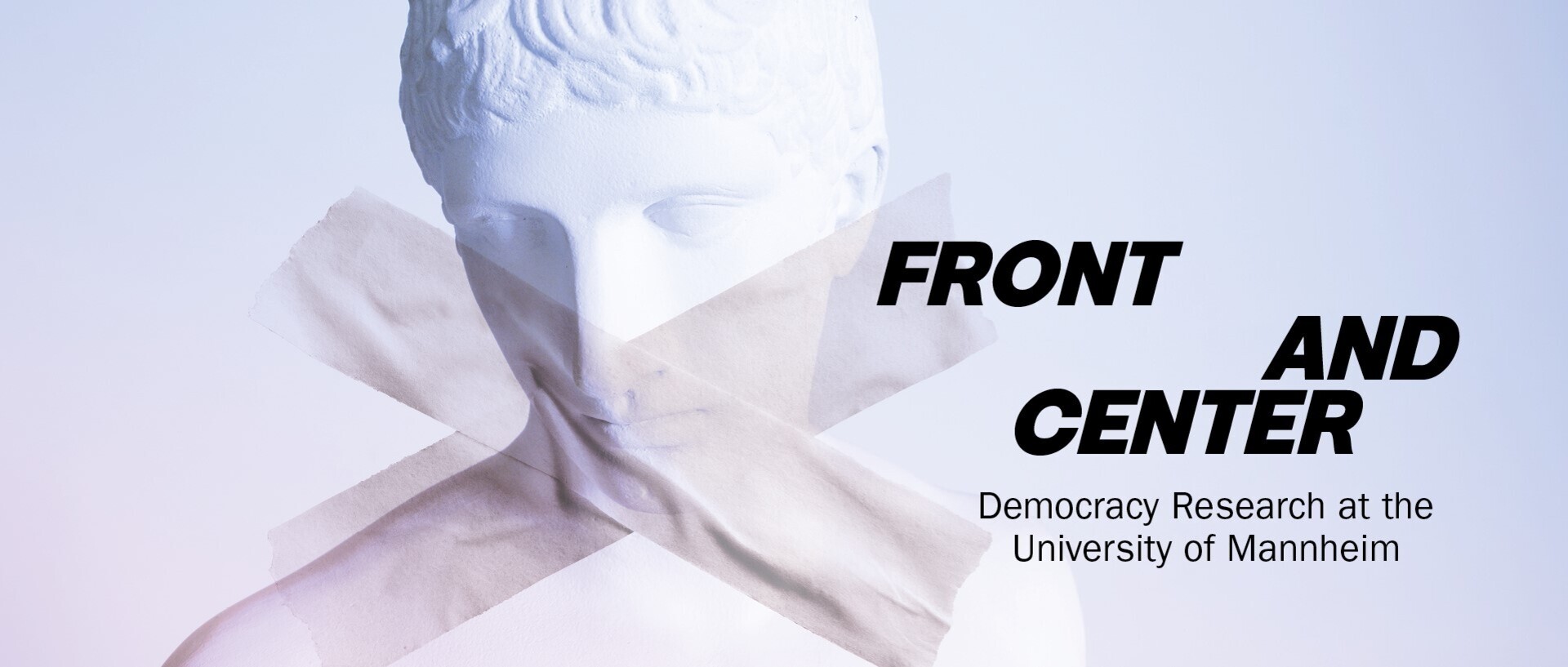Taking Democracy to the Streets
Philipp Gassert is Professor of Contemporary History at the University of Mannheim. Since the 1990s, he has studied protest movements past and present. In this interview, he explains why people take to the streets, what the body has to do with political communication, and why protest is essential to democracy.

FORUM: Professor Gassert, what personally fascinates you about the history of protest?
Prof. Dr. Philipp Gassert: I’m fascinated by how one form of political communication keeps reinventing itself across very different types of societies and media contexts. And it does go way back—into antiquity. The word “protest” comes from Latin, after all. You find protests in the German Peasants’ War of the 1500s, the French and American revolutions, the era of the mass press, the labor movements of the 19th and 20th centuries—and now, in the age of social media.
FORUM: In today’s digital world, are street protests even necessary anymore?
Gassert: There was a time when people thought the rise of social media in the early 21st century would make taking to the streets obsolete. But the opposite has happened. A digital generation—think of Fridays for Future—still chooses to go out and march. Because they know: when I put my physical body on the line, it has a different kind of impact.
FORUM: What exactly makes this physical presence so meaningful?
Gassert: When I stage my protest, bring it to the street in physical form—when protest becomes performative—it spreads. Photos of it can be shared millions of times. From a media perspective, it’s a brilliant strategy to lean into that physicality. To me, protest is embodied communication.
FORUM: Is there a common pattern that all protests share?
Gassert: Yes. To me, protest, across all eras, has always been a form of political communication. It’s about addressing others—about communicating concern or resistance to a specific action or policy. And it’s always about the people protesting as well. Protest is part of one’s identity—usually within a group context.
FORUM: So why do people protest in the first place?
Gassert: Because they believe that the conventional channels for political participation aren’t getting them anywhere. They rely on protest as a communication strategy to draw attention to issues they feel are being neglected by politics or society.

FORUM: What determines whether a protest movement is successful?
Gassert: The assumption is often: the bigger the movement, the greater its impact. But this kind of numbers-based thinking is prone to disappointment. That’s why many movements eventually reframe their goals—by founding organizations, foundations, or think tanks to keep the topic alive. Sometimes, impact alone is enough—take farmers with tractors or truck drivers: they don’t need large numbers of people because their vehicles make a strong statement.
FORUM: Are there limits to protest? Where does legitimate protest end?
Gassert: Resorting to violence discredits political action in our society—and rightly so. It’s counterproductive because people stop listening when protests turn violent. The Red Army Faction made that painfully clear. That said, when the goal is to attract attention, civil disobedience—calculated rule-breaking—can be effective. Just think of the Last Generation: very few people, very high visibility.
FORUM: Has the state’s response to protest also changed over time?
Gassert: Absolutely. In the 19th century and even in early postwar West Germany, the state often responded to protest with considerable violence. During the protests against German rearmament in the late 1940s and early 1950s, for example, around 30 people were killed by police. That’s largely forgotten today, but it’s part of our history. We can say that the state’s reaction has become more civil over time. Still, in authoritarian regimes, state violence remains a common response to protest.
FORUM: So is protest a threat—or a vital part of democracy?
Gassert: Both. Protest is part of democracy. It’s part of our political culture. But from the perspective of those in power, it’s often seen as a necessary evil. Democracies have to learn to accommodate it. Authoritarian regimes struggle much more. Just look at Russia: every protest movement there immediately becomes a power struggle.
FORUM: What does that tell us about the state of democracy today?
Gassert: A resilient democracy knows how to accommodate protest and find ways to engage with it—including protest with racist undertones, by the way. A more rigid system or an unconsolidated democracy—like early postwar West Germany or the Weimar Republic—struggles much more. Protest is an indicator of a society’s ability to withstand crises, but also of the issues bubbling under the surface.
Interview: Fabio Kratzmaier / August 2025
